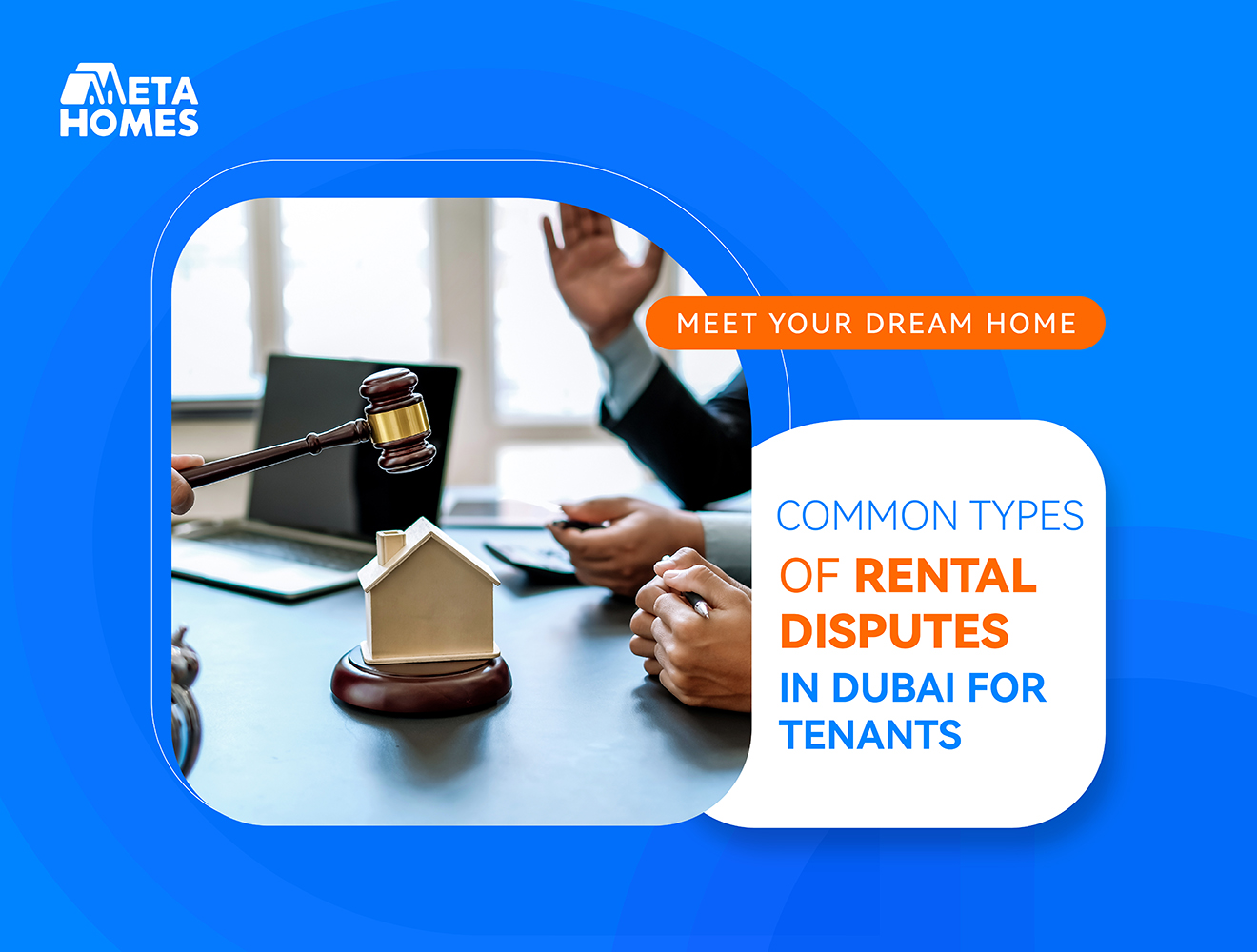
Dubai’s rental market is governed by rules to ensure balance and fairness between landlords and tenants.
However, the complexity of the contract and the cultural and legal nuances of the region often lead to misunderstandings and disputes.
RERA oversees these rules and provides guidelines for both parties to know their rights and obligations.
Despite these rules, disputes happen, and when they do they can be lengthy and costly.
Rental disputes in Dubai can arise from many sources. These include rent increases, security deposit returns, maintenance and repair obligations, and lease terminations.
Tenants are often in a weak position, especially if they are not familiar with the local laws and practices.
For example, a landlord may increase the rent beyond the allowed limit or a tenant may face unjustified deductions from their security deposit.
Such disputes not only cause stress but can also cost a lot of money if not managed properly.
Another area of conflict is the condition of the property at the end of the lease. Landlords may claim damages that tenants think are due to wear and tear and dispute the deposit refund.
Maintenance and repair responsibilities are also a grey area where landlords and tenants often disagree on who should pay for certain repairs.
Lease termination, especially early termination, is another sensitive issue where tenants may face penalties or disputes over the notice period.
Common Rental Disputes for Tenants in Dubai
Here are a few common types of rental disputes in Dubai that happen between landlords and tenants and an easy way to solve each type of rental dispute:
1. Rent Increase Beyond Legal Limits
One of the most frequent issues tenants encounter in Dubai is unlawful rent hikes. RERA has set clear guidelines on how much a landlord can increase the rent based on the market rate.
Disputes happen when landlords increase the rent beyond these legal limits. For tenants, it’s important to know RERA’s rules and make sure the proposed rent increase complies with these guidelines.
If a landlord tries to impose an illegal rent hike, tenants can file a complaint to RERA’s Rental Dispute Settlement Centre (RDSC).
2. Security Deposit Disputes
Security deposits is another common area of dispute. At the beginning of the lease, landlords require a security deposit to cover potential damages or unpaid bills.
However, disputes happen when tenants think the deductions from the deposit are unfair or unjustified.
For example, a landlord may withhold part of the deposit for what they claim are necessary repairs, but the tenant may argue that the damage is due to wear and tear.
To avoid such disputes tenants should document the property’s condition when they move in and out, and keep a detailed record that can be used if there’s a dispute.
3. Early Termination of Lease
Tenants may need to terminate their lease early due to unforeseen circumstances like job relocation.
Most lease agreements in Dubai has a penalty for early termination, but disputes happen when tenants think the penalty is too high or unfair.
To avoid such conflicts, tenants should review the lease terms before signing and negotiate reasonable early termination clauses.
If early termination is necessary, open communication with the landlord can help resolve the issue amicably.
4. Eviction Disputes
Eviction can be sensitive, especially if a tenant feels they are being wrongfully evicted. Dubai law requires landlords to give 12 months’ notice if they want to evict a tenant and this notice should be delivered via registered mail.
However, disputes happen when tenants think the eviction is unjustified or the notice was not properly delivered.
In such cases, tenants can contest the eviction through RDSC where they can present their case and get a resolution.
5. Maintenance and Repair Responsibilities
Maintenance issues is a common area of conflict between tenants and landlords. Dubai law generally requires landlords to handle major repairs and tenant’s minor maintenance.
But disputes happen when there’s ambiguity on what’s a major or minor repair.
For example, if an air conditioning unit breaks down, a tenant may consider it a major repair that the landlord should fix while the landlord may disagree.
To avoid such conflicts, tenants should review their lease agreements and understand their maintenance responsibilities before signing.
If the landlord fails to do the necessary repairs, tenants can report the issue to RERA.
6. Utility Bill Disputes
Disagreement on utility bills is another common issue especially if the lease agreement doesn’t clearly state who’s responsible for the bills.
Some landlords include utility costs in the rent while others require tenants to pay separately. Disputes happen when tenants think they’re being overcharged or when there’s confusion on who should pay.
To avoid such issues tenants should make sure their lease agreement clearly states who’s responsible for the utility payments and how it will be calculated.
7. Property Condition Disputes
Before moving into a rental property, tenants expect it to be in good condition. However, disputes happen if the tenant discovers major issues after moving in, such as faulty plumbing or electrical problems.
To avoid such disputes, tenants should thoroughly inspect the property before signing the lease and report any issues to the landlord immediately.
Documenting the property’s condition with photos or videos can also help resolve disputes if the landlord fails to make necessary repairs.
8. Subletting Disputes
Subletting is typically not permitted in Dubai unless it is specifically authorized in the lease agreement.
Disputes can occur when tenants sublet the property without the landlord’s consent, leading to potential eviction or legal action.
Tenants should always seek written permission from the landlord before subletting to avoid these issues.
If subletting is permitted, it’s crucial to have a clear agreement outlining the responsibilities of both the tenant and the sub-tenant.
9. Lease Renewal Disputes
As the lease term nears its end, disputes can arise over the terms of renewal, particularly if the tenant feels the new terms are unreasonable or if there is a disagreement over the new rent amount.
Dubai’s rental laws provide guidelines for lease renewals, and tenants have the right to negotiate or contest unfair terms.
Clear communication between the tenant and landlord can help prevent misunderstandings and ensure a smooth renewal process.
10. Non-Payment of Rent
Finally, non-payment of rent is a frequent cause of disputes. If a tenant fails to pay rent, the landlord may issue a notice to pay or vacate the property.
If the tenant continues to withhold rent, the landlord can file a case with the RDSC to recover the owed amount.
Tenants facing financial difficulties should communicate with their landlord as soon as possible to discuss potential solutions, such as a payment plan, to avoid legal action.
Notes for Tenants
Tenants must be vigilant in reviewing their lease agreements, maintaining records of communications with their landlords, and seeking legal advice when necessary.
The Dubai Rental Dispute Settlement Centre (RDSC) offers a formal mechanism for resolving disputes, providing tenants with a platform to present their cases and seek redress.



Leave a Reply